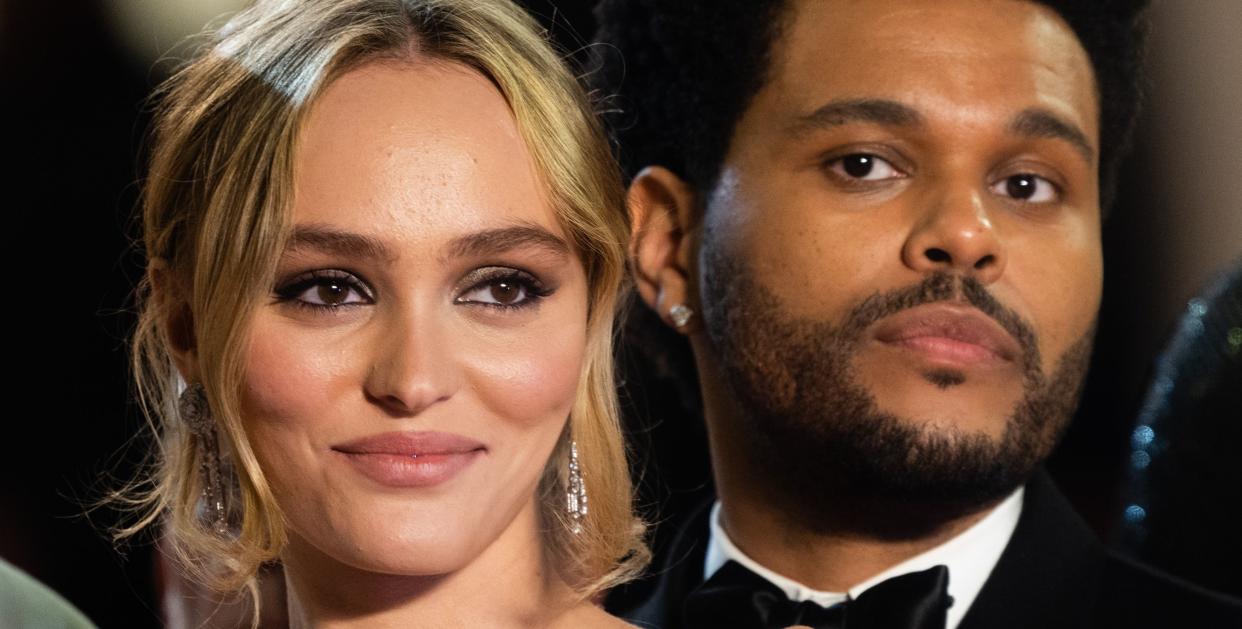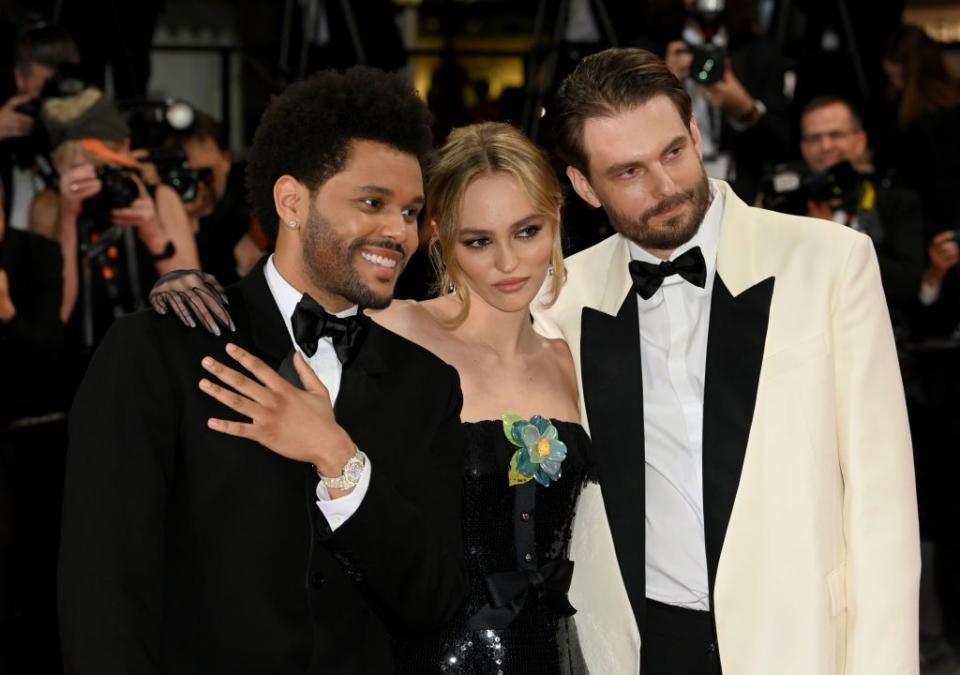Lily-Rose Depp and The Weeknd Raise Eyebrows at Cannes Screening of “The Idol”

- Oops!Something went wrong.Please try again later.
- Oops!Something went wrong.Please try again later.
- Oops!Something went wrong.Please try again later.
- Oops!Something went wrong.Please try again later.
- Oops!Something went wrong.Please try again later.
"Hearst Magazines and Yahoo may earn commission or revenue on some items through these links."
Lily-Rose Depp and Abel “The Weeknd” Tesfaye were the talk of the Cannes Film Festival this week, though not all the talk was necessarily positive.
The first two episodes of the controversial series The Idol, coming to HBO and Max on June 4, were screened at the prestigious film festival on Tuesday. Created by Tesfaye, Reza Fahim, and Euphoria creator Sam Levinson, the show depicts a pop star (Depp) who becomes seduced by modern-day cult leader (Tesfaye).
The highly-anticipated series—which has generated headlines about creative difficulties and expensive reshoots—was met with mixed reactions from the Cannes crowd and reviewers alike, particularly for its explicit sexual scenes and what some have called gratuitous amounts of nudity. Here’s what you should know about the controversial show and what Depp and Tesfaye have to say.
The Idol’s Premise and Inspiration
In the show, Depp portrays Jocelyn, a pop phenomenon who suffers a psychotic break after her mother dies and her former lover leaks sexually graphic photos of her to the public. The character’s rise and meltdown makes parallels to real-life public struggles of pop star Britney Spears.
In this vulnerable state of mind, Depp meets Tedros (Tesfaye), the mysterious owner of a Los Angeles nightclub who also secretly runs a cult that has been compared to NXIVM and Scientology. Jocelyn finds herself under Tedros’ charismatic spell, leading to a complex sexual and psychological relationship.
The series was inspired by Tesfaye’s perspective of the dark side of celebrity and fandom from his own rise as a musician. Tesfaye, who is executive producer of The Idol as well as co-creator and star, pitched the idea to Levinson, telling him “If I wanted to start a cult, I could.”
“What he meant is that his fans were so loyal and devoted that they would follow him anywhere,” Levinson told W magazine. “That was the germ of the idea for The Idol: What happens when a pop star falls for the wrong guy and no one speaks up?” Levinson has also called the show a reflection on the “pornification” of American pop culture.
Depp identified commonalities between her character and her own highly-public life as the daughter of movie star Johnny Depp and singer Vanessa Paradis: “I think it is just about the people you surround yourself with. That’s something that we see my character actively doing in the show, struggling with the people she is keeping around her and wondering if they are telling her the truth [it’s] all about surrounding yourself with good people.”
The Creative Differences While Shooting

The Idol has generated much hype and attention since the series was first ordered in November 2021, particularly due to reports of creative difficulties and expensive reshoots behind the scenes. Those stories first surfaced after the sudden departure of original director Amy Seimetz, even though about 80 percent of the first six episodes were already complete.
An explosive Rolling Stone article published in March, citing interviews with 13 members of the cast and crew, described the making of The Idol as “let’s just say, a s––tshow,” according to one source. Later in the piece, a source describes that what started as “a dark satire of fame and the fame model in the 21st century” gradually changed “from satire to the thing it was satirizing.”
Reports surfaced that Seimetz was dismissed because Tesfaye felt the show was heading too far into a “female perspective,” though he has denied this claim. Levinson took the reins of the show and reshot the episodes, reportedly moving away from the story’s original themes and ramping up the sexual content and graphic nudity, according to the Rolling Stone article.
“A show about a woman who was finding herself sexually turned into a show about a man who gets to abuse this woman and she loves it,” according to one of the sources who spoke to Rolling Stone. “It was like, ‘What is this? What am I reading here?’ It was like sexual torture porn.”
Depp, Tesfaye, and Levinson have denied these allegations. Depp called Levinson “the best director” she’s ever worked with and said that she never “felt more supported or respected in a creative space, my input and opinions more valued.” Tesfaye called the article “ridiculous” and downplayed Seimetz’s departure, saying “shows get reshot every day.”
The Mixed Reactions at Cannes
The two-episode screening of The Idol was met with a mixed response at the Cannes. While Depp’s performance was praised, The Hollywood Reporter called the show “more regressive than transgressive” and criticized Depp’s “gratuitous” displays of nudity, writing “rarely does a scene go by without the camera showing flashes of her breasts or ass.”
Variety condemned its “tawdry cliches” and said the show “plays like a sordid male fantasy.” The Los Angeles Times called it “a naked attempt to bring the TikTok generation back to cinemas with a tantalizing nepo-baby vibe, along with hints of scandal,” but called the eroticism too “ham-fisted” to truly shock.
Deadline, however, wrote that it was “hard to know what to say” about The Idol and that more would need to be seen before judgements could be made. Regardless of the mixed reactions, Tesfaye remains confident in the series and the satire it seeks to convey.
“I initially wanted to make a dark twisted fairy tale about the music industry and heighten it,” he said. “[Levinson and I] wanted to really see if we could create our own pop star, using my experiences, using his experiences, using Lily’s experiences from her point of view, to create something special, daring, exciting, fun, to make some people laugh and to piss some people off.” In less than two weeks, you can decide where you land for yourself.
Watch The Idol on June 4
The Idol premieres on HBO and the streaming service Max (formerly HBO Max) on June 4 at 9 p.m. ET.
You Might Also Like

